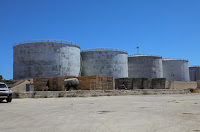The recent floods in Bangladesh have underscored the complex
and often contentious nature of water management in South Asia. As the region
faces increasing challenges from climate change and population growth, the need
for cooperation and mutual respect between nations has never been more urgent.
The disaster serves as a wake-up call, highlighting the critical importance of
regional collaboration in managing shared resources and ensuring the well-being
of all people in the region.
Bangladesh, frequently affected by natural calamities, is
now enduring one of the worst floods in recent memory. While floods are common
in this region, the current catastrophe is not solely attributable to nature’s
wrath. Instead, it is being increasingly linked to the actions of neighboring
India.
The recent and abrupt release of water from the Dumbur Dam
in India’s Tripura State, located upstream of the Gumti River, has sparked
unprecedented flooding in Bangladesh’s eastern border districts. This incident
has intensified long-standing tensions between the two countries, with
Bangladesh accusing India of negligence and poor management of their shared
water resources.
The flood’s impact has been nothing short of catastrophic.
More than three million people have been affected, with vast areas of farmland,
homes, and infrastructure swallowed by the surging waters. The districts of
Feni, Parshuram, Fulgazi, and Chhagalnaiya have suffered the most, as the Chhota
Feni River, along with the Muhuri, Silonia, and Kahua rivers, swelled beyond
control.
Residents of these regions are in shock, noting that such
severe flooding has not been witnessed in over three decades. The immediate
trigger for this disaster, as widely believed in Bangladesh, was India’s
decision to release water from the Dumbur Dam.
Indian authorities, however, have pointed to heavy rainfall
in the Gumti River’s catchment areas as the primary reason for the dam’s
release. Nonetheless, Bangladeshi officials and local media remain adamant that
the scale of the flooding could have been mitigated with better management and
communication from the Indian side.
In response to the growing accusations, India’s Ministry of
External Affairs (MEA) has defended its actions, stating that the water release
from the Dumbur Dam was an automatic response to the heavy inflow caused by
intense rainfall.
According to the MEA, real-time flood data was shared with
Bangladesh until the floods disrupted communication channels. Indian officials
maintain that the crisis was an unavoidable consequence of natural forces and
that they are not to blame for the resulting devastation.
Despite these explanations, Bangladesh remains skeptical.
Officials in Dhaka argue that India’s handling of the dam and the subsequent
communication breakdown significantly worsened the situation. They believe that
India could have taken additional steps to minimize the impact of the water
release, including better coordination with Bangladeshi authorities and
ensuring contingency plans were in place for such emergencies.
The fact that communication between the two countries failed
at a critical moment has raised alarm bells in Dhaka. This disruption has
exposed serious flaws in the existing bilateral protocols, particularly in how
emergency communications are managed. Whether due to inadequate preparedness or
a lack of priority given to emergency communication, this failure has clearly
exacerbated the disaster.
The flood crisis is not merely an environmental catastrophe;
it carries significant political and diplomatic repercussions as well. The
incident has strained the already fragile relations between India and Bangladesh,
with public opinion in Bangladesh increasingly viewing India as an unreliable
and negligent neighbor. This growing sentiment could have lasting effects on
bilateral relations, particularly in areas such as water-sharing agreements,
border management, and regional cooperation.
For years, Bangladesh has advocated for fair and equitable
water-sharing agreements with India, given its reliance on trans-boundary
rivers like the Ganges, Brahmaputra, and Teesta. The recent floods have
reignited these concerns, with calls growing louder for a more transparent and
accountable system for managing shared water resources.
In the wake of this disaster, there is a strong push within
Bangladesh for a reevaluation of its water-sharing arrangements with India.
Many are demanding stricter regulations and more effective safeguards to
prevent a recurrence of such incidents. Additionally, there is increasing
support for greater international involvement in overseeing the management of
these critical resources, considering the potential for cross-border disputes.
While the political and diplomatic fallout is significant,
the human toll of the floods is devastating. Millions of people have been
displaced, with many losing their homes, livelihoods, and, tragically, loved
ones. The affected regions are now facing severe shortages of food, clean
water, and medical supplies, as relief efforts struggle to address the
magnitude of the disaster.
The floods have also deepened existing vulnerabilities in
Bangladesh’s rural areas, where poverty and inadequate infrastructure make
communities particularly susceptible to natural disasters. The long-term impact
of the floods will likely be felt for years, as Bangladesh undertakes the
arduous task of rebuilding and recovering from this calamity.
As Bangladesh contends with the aftermath of the floods, it
is evident that the country must bolster its disaster preparedness and
resilience. This involves not only improving infrastructure and early warning
systems but also ensuring that neighboring countries are held accountable for
actions that have cross-border consequences.
Bangladesh must continue to assert its rights and interests
in regional discussions, particularly concerning water management and disaster
response. For India, this incident should serve as a critical reminder of the
importance of maintaining transparent and reliable relationships with its
neighbors. Effective communication, collaboration, and a genuine commitment to
resolving shared challenges are essential to preventing similar disasters in
the future.






